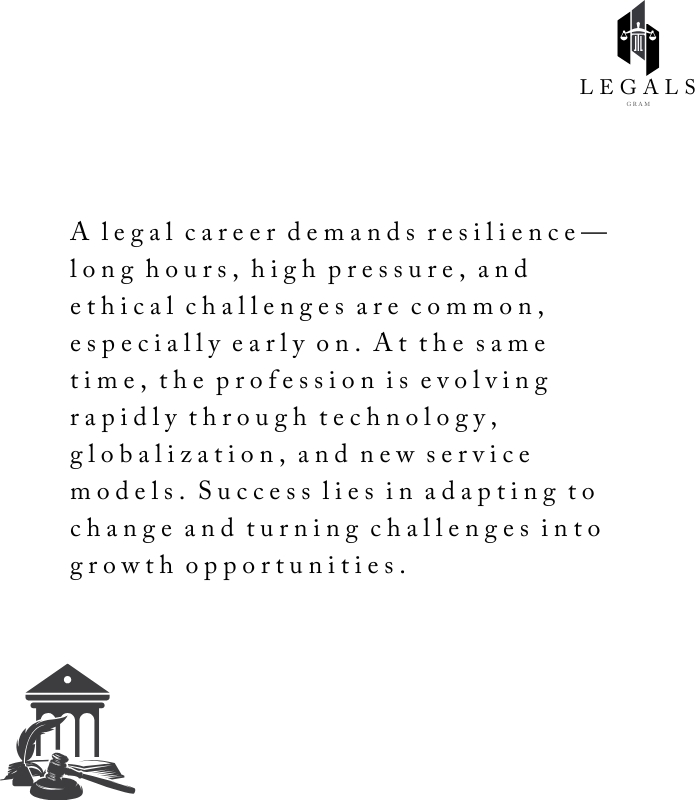Are you considering a career in law but feeling uncertain about whether it’s the right path for you? The legal profession offers a unique combination of intellectual challenge, societal impact, and professional prestige that continues to attract ambitious individuals worldwide. This guide explores the compelling reasons to choose law as your career, the diverse opportunities available within the field, and practical considerations to help you make an informed decision about your professional future.
The Enduring Appeal of the Legal Profession
The legal profession has maintained its status as one of the most respected and sought-after career paths for centuries. While the practice of law has evolved significantly with technological advances and societal changes, its core function of upholding justice and providing essential services remains unchanged.
Intellectual Stimulation and Continuous Learning
One of the most rewarding aspects of a legal career is the intellectual challenge it presents. The law is constantly evolving, requiring practitioners to:
- Analyze complex information and identify key issues
- Develop persuasive arguments based on precedent and statute
- Stay updated on legislative changes and court decisions
- Apply abstract legal principles to unique factual scenarios
For those who enjoy problem-solving and intellectual debate, few careers offer the same level of mental stimulation. Every case presents a new puzzle to solve, ensuring that the work remains engaging throughout your career.
Financial Stability and Growth Potential
While salary shouldn’t be the sole factor in choosing a career, the financial prospects in law remain attractive. After the initial investment in education, legal professionals typically enjoy:
- Competitive starting salaries, particularly in corporate law
- Steady income progression as experience grows
- Partnership opportunities with significant income potential
- Multiple pathways to financial success across different legal specialties
Entry-level positions at prestigious firms can command six-figure salaries, while experienced attorneys and partners often earn substantially more. Even government and public interest roles, while offering lower compensation, typically provide stable incomes and excellent benefits.
Prestige and Professional Respect
Despite changes in the professional landscape, attorneys continue to hold respected positions in society. The legal profession offers:
- Recognition as a trusted advisor and expert
- Membership in a profession with a rich history and traditions
- The respect that comes with mastering a complex body of knowledge
- Status associated with holding a professional degree
This professional standing extends beyond the workplace, often translating to respected positions within communities and civic organizations.
Making a Meaningful Impact Through Law
Beyond personal benefits, legal careers offer unique opportunities to effect change at individual, community, and societal levels.
Advocating for Justice and Equality
For many, the most compelling reason to pursue law is the opportunity to advocate for justice:
- Representing individuals who might otherwise lack access to the legal system
- Working to correct injustices and protect fundamental rights
- Shaping policy through impact litigation or legislative work
- Providing a voice for marginalized or vulnerable populations
Whether working in criminal defense, civil rights, immigration, or countless other areas, attorneys have the privilege of standing between their clients and potentially life-altering consequences.

Solving Real Problems for Individuals and Businesses
The law touches virtually every aspect of modern life, meaning legal professionals help people navigate their most significant challenges:
- Guiding families through estate planning or difficult transitions
- Helping entrepreneurs launch and grow businesses
- Protecting intellectual property and creative works
- Resolving disputes that might otherwise remain intractable
The direct impact of your work as a legal professional is often immediately visible, providing a sense of purpose and accomplishment.
Shaping Policy and Institutions
Beyond individual cases, attorneys influence how our society functions:
- Drafting legislation that affects millions of people
- Interpreting and applying constitutional principles
- Developing corporate governance structures and regulations
- Creating frameworks for international cooperation
This ability to shape systems and institutions offers a level of influence rarely found in other professions.
The Versatility of Legal Training
Few educational paths offer the versatility of legal training. A law degree prepares you not just for traditional practice but for countless other roles.
Diverse Practice Areas
The legal field encompasses dozens of specialized practice areas, including:
- Corporate and business law
- Criminal justice
- Family law
- Environmental law
- Intellectual property
- Health law
- Labor and employment
- International law
- Immigration
- Tax law
This diversity allows you to align your career with your interests, values, and strengths. You can also transition between specialties throughout your career as your interests evolve.
Varied Professional Settings
Legal professionals work across numerous environments:
- Private law firms (from solo practices to global firms)
- Corporate legal departments
- Government agencies (local, state, and federal)
- Non-profit organizations
- Courts and judicial chambers
- Academic institutions
- International organizations
Each setting offers different advantages in terms of work-life balance, compensation, and types of legal work performed.
Alternative Legal Careers
A law degree opens doors beyond traditional practice:
- Legal journalism and publishing
- Legal technology and innovation
- Compliance and regulatory affairs
- Mediation and alternative dispute resolution
- Politics and public policy
- Business leadership and entrepreneurship
These alternative paths leverage legal training while offering different day-to-day experiences than traditional practice.
Practical Considerations for Prospective Law Students
While the benefits of a legal career are substantial, it’s important to approach this path with a clear understanding of the challenges and requirements.
Educational Investment
The path to becoming a lawyer typically requires:
- An undergraduate degree (four years)
- Law school (three years)
- Bar examination preparation and passage
- Continuing legal education throughout your career
This represents a significant investment of time and money, with law school tuition often exceeding $150,000 at private institutions. Carefully research scholarship opportunities and consider the return on investment based on your career goals.
Work Environment Realities
Legal careers can involve:
- Long working hours, particularly in prestigious firms and during early career stages
- High-pressure situations with significant consequences
- Managing difficult clients and opposing counsel
- Navigating ethical dilemmas and conflicts
These challenges are counterbalanced by the rewards mentioned earlier, but they require realistic expectations and strong resilience.
The Changing Legal Landscape
The legal profession is experiencing significant transformation:
- Technological innovation automating certain legal tasks
- Globalization creating new competitive pressures
- Alternative service delivery models challenging traditional practices
- Increasing specialization requirements
Successful legal professionals adapt to these changes, seeing them as opportunities rather than threats.

Is Law the Right Path for You?
Consider these factors when evaluating whether law aligns with your strengths and goals:
Personal Attributes That Support Success in Law
The most successful legal professionals often possess:
- Strong analytical and logical reasoning abilities
- Excellent communication skills (both written and verbal)
- Attention to detail and thoroughness
- The ability to work well under pressure
- Strong ethical principles and integrity
- Perseverance and determination
While these traits can be developed, having natural inclinations in these areas makes the path easier.
Self-Assessment Questions
Ask yourself:
- Do you enjoy solving complex problems and analyzing details?
- Are you comfortable with ambiguity and making arguments from multiple perspectives?
- Can you communicate persuasively in both writing and speaking?
- Are you willing to commit to the required education and training?
- Do the aspects of legal work that interest you align with the realities of those practice areas?
Honest answers to these questions help determine whether law is your optimal career path.
Preparing for a Successful Legal Career
If you decide to pursue law, several strategies can maximize your chances of success:
Educational Foundation
- Focus on developing strong writing skills in your undergraduate studies
- Take courses that enhance critical thinking and analytical abilities
- Maintain a competitive GPA for law school admissions
- Prepare thoroughly for the LSAT or other law school entrance exams
Practical Experience
- Seek internships at law firms, courts, or legal departments
- Volunteer with legal aid organizations or clinics
- Work as a paralegal or legal assistant before law school
- Network with current legal professionals to understand the day-to-day reality
Ongoing Professional Development
Once in the legal profession:
- Find mentors who can guide your career development
- Specialize in areas that align with your interests and market demand
- Build a professional network within and beyond your specialty
- Invest in continuous learning and skills development
Conclusion: A Career of Purpose and Potential
The legal profession offers a rare combination of intellectual challenge, societal impact, financial stability, and career versatility. While not without its challenges, law remains one of the few careers where you can simultaneously pursue professional success and meaningful contributions to justice and society. Stop Failing Law Exams: 10 Study Tricks You Need Right Now
For those with the aptitude and dedication, a legal career provides lifelong opportunities for growth, influence, and purpose. Whether advocating for individual clients, shaping corporate transactions, or influencing public policy, legal professionals play essential roles in virtually every aspect of modern society.
As you consider whether law is the right path for you, reflect on both the practical realities and the profound possibilities. The journey to becoming a legal professional requires significant investment, but for many, the rewards—both tangible and intangible—make it one of the most fulfilling career choices available.



